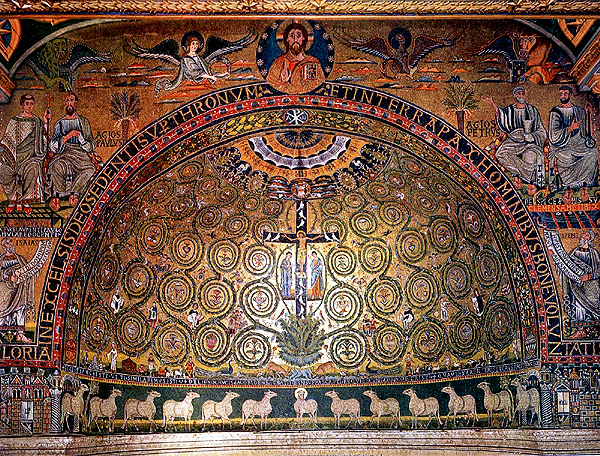Mosaic on the apse of the Church of St. Clemente al Laterano, Rome,
realized during the XII century. The crucifix originates from a tuft
of leaves and is thoroughly encircled by leafy spirals which occupy
the entire scene.
One can notice here the attempt to superimpose images pertaining to
the Christian tradition on an underlying tree symbolism, which seems
still powerful and effectual. The cults practiced in the woods and beside
springs were among the most frequent objects of assault by the Christian
preachers. “Destroying the sacred woods and substituting the cult
of the saints to the cult of fountains and springs, the Church has thrown
itself, since late Antiquity, into a long-term endeavour whose purpose
was nothing less than to anthropomorphize the world and to submit the
natural world to man” (Vauchez 1987, p. 354).
According to the medieval Legenda crucis, the cross on which
Christ has been crucified had been built with the wood of the tree from
the Garden of Eden, thus identifying the cross with the cosmic tree
which arose at the centre of the world in the time of origins.
[Image: http://basilicasanclemente.com/eng/]


